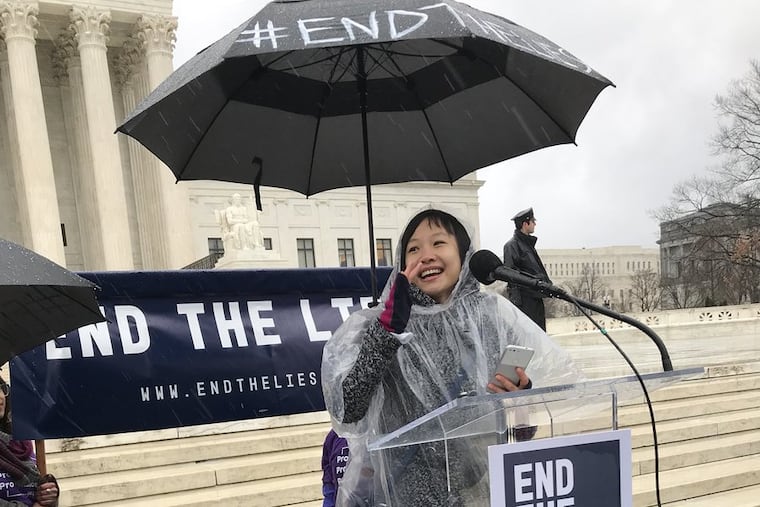Pennsylvania’s heartbeat bill makes me worry for my patients’ abortion access | Opinion
While Governor Wolf has promised to veto such a so-called heartbeat ban on abortions, House Bill 1977 will create a climate of uncertainty and fear for the people I care for.

I am a family doctor who provides abortion care in the Philadelphia suburbs. While that may sound like a bit of an oxymoron, the reality is that abortion is just like any other health care decision. Prenatal care and abortion care comprise the full spectrum of reproductive health care. Sometimes the decision to have an abortion is complex and full of emotions, sometimes it’s straightforward, and sometimes it’s heartbreaking and full of grief. No matter how easy or difficult, the only person who knows what the right decision is for the woman sitting in front of me is that woman herself.
What do my patients want when they decide to have an abortion? They want the same type of information and support as any other patient. They want honesty from their physician. They want clear and accurate information. They want support to make decisions that are right for them and assistance to navigate a complex health care system.
Last week, Pennsylvania became the latest state to introduce a ban on abortions when a baby’s heartbeat is detectable. While Gov. Tom Wolf has promised to veto such a ban, House Bill 1977 will create a climate of uncertainty and fear for the people I care for. If passed, the bill will ban abortions as early as six weeks into pregnancy, when most women don’t even know they’re pregnant.
HB 1977 would prevent me from offering essential medical advice to my patients. When it comes to abortion, women are likely to receive misinformation bordering on deception and outright lies. I’ve had women ask me if they were going to be cut up with metal instruments, making them infertile. I had to reassure them that abortion is a safe, medical procedure.
Apart from HB 1977, Pennsylvania already restricts abortion access through laws that have nothing to do with safety. If you want an abortion, the state mandates that you receive counseling designed to discourage you, and wait a full 24 hours before the procedure. What’s worse, about 85 percent of our counties lack a health care clinic that provides abortion care. From 2014 to 2017, our state saw a 10 percent decline in the number of abortion clinics.
The numbers are troubling, and my experiences concern me. I once saw a 30-year old woman who struggled with many years of opioid use. She was finally recovering in a program and taking suboxone, medication that has proven to be successful at helping people stay sober. We had a conversation about the benefits and risks of suboxone during pregnancy, and how pregnancy could impact her recovery. After much discussion, after learning about all of her health care options, she decided that an abortion was the best decision for her. But due to Pennsylvania’s laws, I could not provide her with an abortion right in my office. I had to refer her to another clinic.
Another woman, a 26-year-old mother of two young children, came to see me about her miscarriage. We were able to discuss all of her treatment options: she could wait and let her body naturally take care of the miscarriage; she could take medication to help her uterus pass the pregnancy; or she could have a suction procedure and shorten the entire process. She didn’t want to worry about bleeding, working, and caring for her children, so she decided on the suction procedure, which I was able to do in my office. But due to Pennsylvania’s laws, I would not have been able to provide the same exact procedure had it been her abortion.
I have the skills, the knowledge, and the trust of my patients. As a physician, I want to be in a position to help people when they need it most. Pennsylvania’s laws, however, make it difficult for family doctors like me to provide all forms of care, including abortion care. HB 1977 would be yet another nail on the coffin for women’s health in our state.
Lin-Fan Wang is a family physician who practices in the Greater Philadelphia Area. She is a member of Eastern PA’s Reproductive Health Access Project Cluster and fellow with Physicians for Reproductive Health.